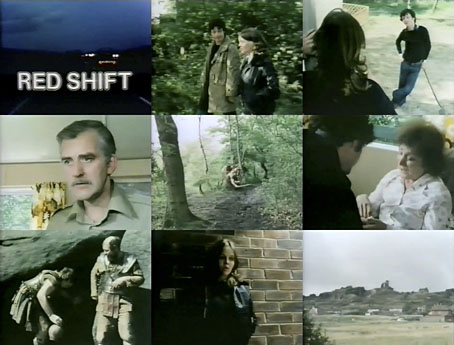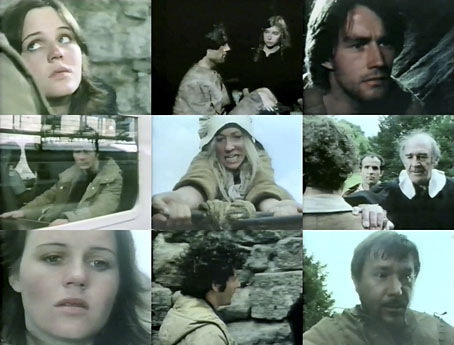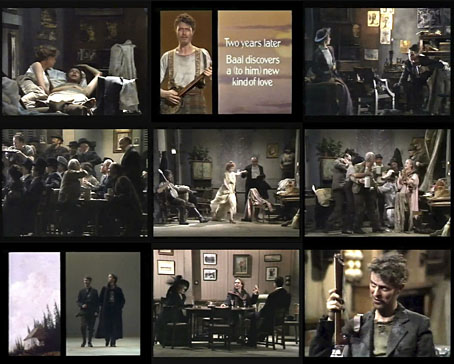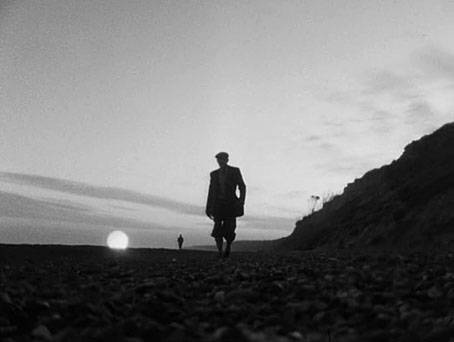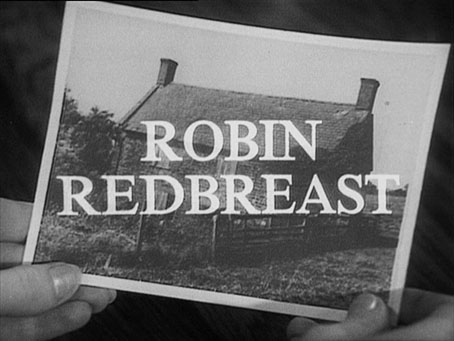
This TV play from 1970 was one of the films I watched last year at Halloween, a very poor bootleg copy from the BBC archives with a timecode running away in one corner. So it’s been a surprise to find the BFI releasing it so soon after on DVD. I never saw Robin Redbreast originally, and hadn’t even heard about it until a friend with a similar taste for the outré and neglected told me to look out for it. The main reason for the BFI picking out a rather obscure Play for Today for reissue has been its rising cult status in the sub-genre of British rural or folk horror. Blood on Satan’s Claw (1971), and The Wicker Man (1973) are the more notable examples, although in tone and presentation Robin Redbreast is closer to Nigel Kneale’s Murrain (1975), another TV play that’s currently available as a bonus on the Beasts DVD collection.
The usual plot of this kind of drama concerns the arrival of an outsider in a rural community whose presence arouses suspicion and conflict. Robin Redbreast reverses this by having its metropolitan outsider, Norah, move to the country only to find her neighbours are welcoming to the point of being interfering. In time the interference starts to become oppressive, and unfortunately this is one of those dramas where to reveal much more would be to spoil the unwinding of the story. There’s nothing supernatural here, like The Wicker Man a mystery grades in its final moments to horror. With little in the way of cinematic atmosphere it’s left to a detailed script and the performances to do the work. All the leads are excellent, especially Anna Cropper as the beleaguered Norah, and Bernard Hepton as the quietly sinister Fisher.
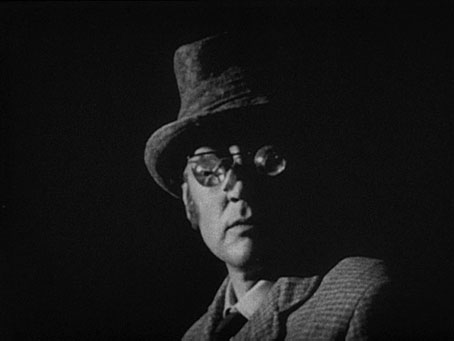
Bernard Hepton.
Robin Redbreast was originally filmed and broadcast in colour but the BBC had a habit of wiping many of their tapes after broadcast so what we’re left with is a telerecording on 16mm black-and-white film. This isn’t ideal but it does have the effect of giving all the scenes more consistency. Like most dramas of the period, interior shots were done in the electronic studio while exteriors were shot on film, a technique which was taken for granted at the time but which looks uneven today. The DVD is still superior to the bootleg copy that was doing the rounds. In one of the extras writer John Bowen discusses the origin of the play, explaining how a BBC editor was horrified by a plot detail concerning female contraception. This led to the script being dropped by the suspense series for which it was written, and subsequently taken up by director James MacTaggart for the new Play for Today strand. Play for Today ran for 14 years, producing many impressive dramas but mostly offering a solid diet of social realism. Robin Redbreast is one of a handful of stranger works that crept onto the screen, along with the peerless Penda’s Fen (1974), and Alan Garner’s adaptation of his novel, Red Shift (1978). Now that the BFI has exhausted the BBC’s more obvious ghost and horror fare I’m hoping that some of the less generic films may find a new audience on DVD.
Previously on { feuilleton }
• Red Shift by Alan Garner
• Children of the Stones
• Penda’s Fen by David Rudkin




